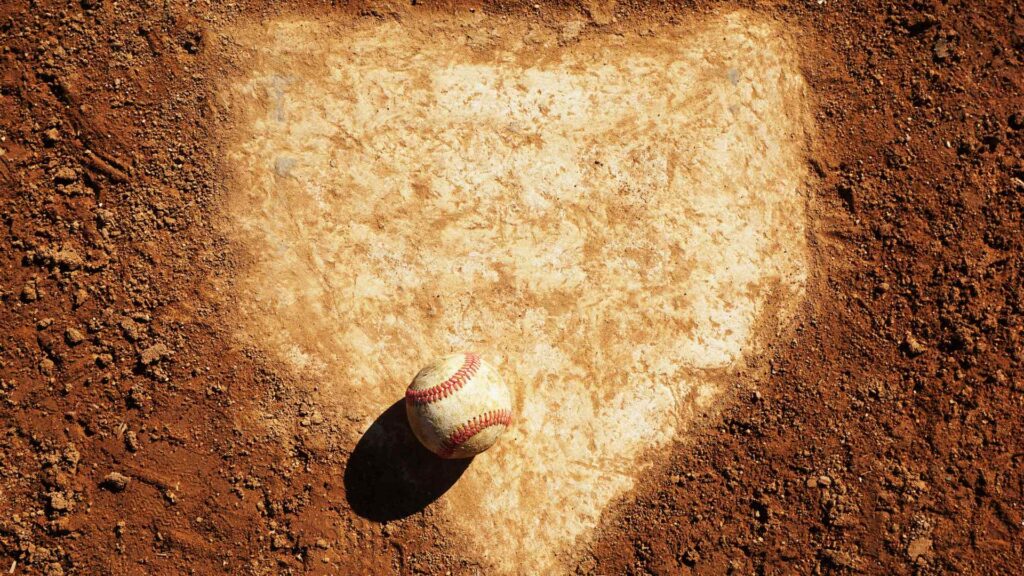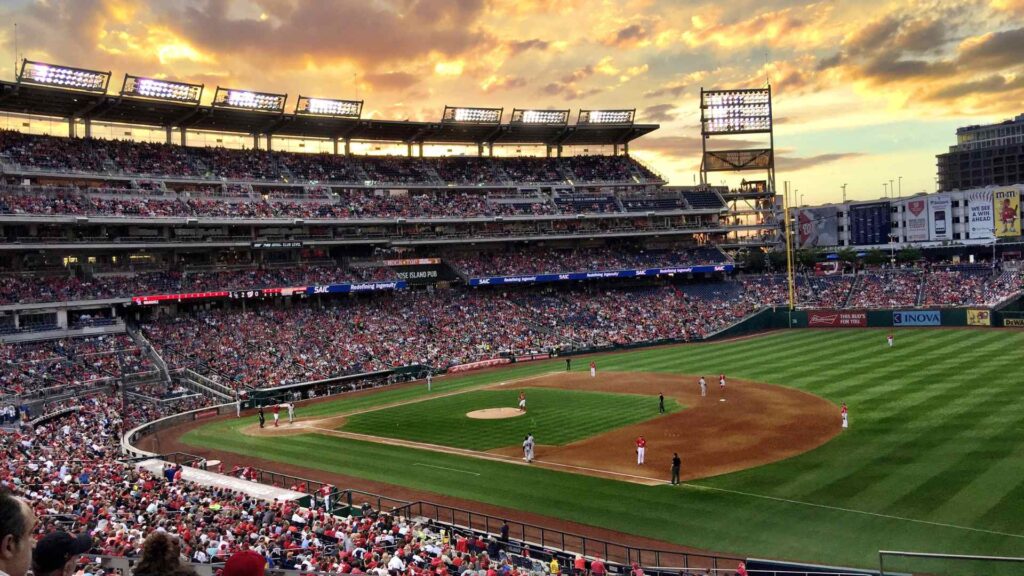Babe Ruth, one of baseball’s most legendary figures, wasn’t just known for his home runs.
His numerous nicknames tell a story of greatness, charisma, and the impact he had on and off the field. Let’s explore the rich history and significance behind each of Babe Ruth’s famous monikers.
Babe Ruth: A Brief Overview
Babe Ruth, born George Herman Ruth Jr., is a name synonymous with baseball excellence.
Playing primarily for the New York Yankees, Ruth became an iconic figure not only for his incredible skills but for his larger-than-life persona.
Known as a slugger, he dominated the baseball scene from the 1910s to the 1930s, setting records that would stand for decades.
However, his achievements extended beyond stats and trophies—he also earned a treasure trove of nicknames that symbolized his larger-than-life legacy.

The Importance of Nicknames in Baseball
Nicknames in baseball are more than just casual tags; they encapsulate a player’s skills, personality, and impact on the game.
For Babe Ruth, his nicknames reflect his prowess, showmanship, and the admiration of fans and sportswriters alike. Let’s dive into the most famous of these nicknames and their significance.
The Sultan of Swat
Meaning and Origin:
“The Sultan of Swat” is perhaps the most famous of all Babe Ruth’s nicknames. It emphasizes his extraordinary ability to hit home runs—essentially, to “swat” the ball out of the park.
This nickname highlights Ruth’s dominance as a power hitter, showcasing the respect and admiration he commanded on the field.
Significance:
Ruth wasn’t just any home-run hitter; he was the best. This nickname elevated him to a regal status—“Sultan” implies royalty, symbolizing his rule over the realm of batting power.
By calling him the “Sultan of Swat,” fans and commentators acknowledged his unprecedented ability to deliver massive hits.
Historical Impact:
The moniker helped solidify Ruth’s legend.
As his home runs became more frequent and more powerful, the nickname captured the public’s imagination, contributing to his mythos as baseball’s supreme slugger. It’s a term still revered today when discussing baseball’s history.

The Great Bambino
Meaning and Origin:
“The Great Bambino” is another of Ruth’s most iconic nicknames, derived from the Italian word “bambino” meaning “baby.”
It plays off his given name, “Babe,” while adding an Italian flair, popular in New York’s immigrant-rich communities.
Significance:
This nickname suggests both endearment and admiration. It reflects his boyish charm and charisma, characteristics that made him relatable to fans of all ages.
The combination of “Great” and “Bambino” also underscores Ruth’s universal appeal; he was a hero to the masses, a larger-than-life figure who transcended the sport itself.
Historical Impact:
This nickname became ingrained in American pop culture, referenced in films like The Sandlot.
The term “Great Bambino” symbolizes an era when baseball was king and Ruth was its undisputed monarch.
Even today, it evokes nostalgia and admiration, cementing Ruth’s legacy as a beloved icon.
The Colossus of Clout
Meaning and Origin:
This nickname is a tribute to Babe Ruth’s unmatched power and influence in baseball.
The term “Colossus” refers to something enormous, while “clout” describes a mighty impact—perfectly capturing Ruth’s ability to crush baseballs with his powerful swing.
Significance:
This nickname reflects Ruth’s sheer dominance. As one of the most feared sluggers in the history of the game, Ruth’s presence at the plate was monumental.
The combination of “Colossus” and “Clout” paints a vivid image of his intimidating stature and hitting prowess.
Historical Impact:
The nickname symbolizes Ruth’s ability to command attention and respect. It’s not merely about his physical power; it also alludes to his cultural influence, showing that his impact went beyond sports.
The “Colossus of Clout” is a nod to Ruth’s status as both a baseball legend and a towering figure in American culture.
The King of Crash
Meaning and Origin:
This moniker further emphasizes Ruth’s unparalleled skill in hitting home runs. The term “crash” evokes the thunderous sound and power of Ruth’s hits when they connected with the baseball.
He was known for sending balls deep into the bleachers, often accompanied by gasps of awe from spectators.
Significance:
By calling him “The King of Crash,” sportswriters and fans were acknowledging Ruth’s place as the ultimate home-run hitter.
It’s a nickname that conveys action, excitement, and Ruth’s dominance on the field. As “king,” he held an almost royal status among hitters of his time.
Historical Impact:
This nickname added to the mythical aura surrounding Ruth’s feats. Fans would flock to the stadium just to witness the “crash” of his bat, a spectacle unlike anything seen before.
This moniker remains a testament to the excitement and drama Ruth brought to the game.

The Titan of Terror
Meaning and Origin:
“The Titan of Terror” highlights not only Ruth’s physical prowess but also the fear he instilled in pitchers.
The use of “Titan” denotes his colossal stature in the sport, while “Terror” alludes to the dread pitchers felt facing his bat.
Significance:
This nickname reinforces Ruth’s intimidating presence at the plate. Pitchers knew that a single mistake could result in a home run, which added an element of psychological warfare to his game.
Ruth’s dominance was not just in his physical abilities but also in the fear he could generate in opponents.
Historical Impact:
This nickname speaks to Ruth’s strategic and mental dominance. It was not only his talent but his ability to strike fear into the hearts of pitchers that made him such a formidable force.
“The Titan of Terror” remains a nickname that signifies the mental edge Ruth had over his competition.
The Colossus of Baseball
Meaning and Origin:
An extension of “The Colossus of Clout,” this nickname focuses on Babe Ruth’s stature within the baseball world as a whole. It was not just his ability to hit home runs that earned him this title, but his overall influence and contribution to the sport.
Significance:
Babe Ruth wasn’t just a player; he was a transformative figure. As the “Colossus of Baseball,” he represented everything fans loved about the game—skill, charisma, and a larger-than-life presence. This nickname underlines his comprehensive impact, from his legendary performances to his off-field persona.
Historical Impact:
This title cemented Ruth’s legacy as a giant in the history of baseball. It serves as a reminder that his contributions to the sport went beyond his home runs—he was a cultural phenomenon and an inspiration for generations to come.
Jidge
Meaning and Origin:
“Jidge” is a playful nickname derived from Babe Ruth’s real first name, George. It’s a colloquial and affectionate term used by teammates and friends, reflecting the camaraderie he shared with those around him.
Significance:
Unlike some of his more majestic nicknames, “Jidge” offers a more personal, human side of Ruth. It suggests that despite his colossal reputation, Ruth was still approachable and beloved by those who knew him well.
Historical Impact:
While not as well-known as his other nicknames, “Jidge” provides insight into the man behind the legend. It’s a reminder that even a giant like Babe Ruth had friends who saw him simply as “George.” This nickname contributes to the multi-dimensional portrayal of Ruth’s life.
Babe
Meaning and Origin:
Simply “Babe,” this nickname originated early in Ruth’s career when he was signed as a young player with the Baltimore Orioles. The team’s manager, Jack Dunn, referred to him as “Dunn’s baby” due to his youth, and the moniker stuck.
Significance:
This nickname is the foundation upon which all others were built. “Babe” reflects both Ruth’s humble beginnings and his natural talent that quickly became apparent to fans and coaches alike. It’s a term that encapsulates his entire career, a simple yet powerful symbol of his legacy.
Historical Impact:
Though it might seem basic compared to his other grand titles, “Babe” is the name that endures. It’s the name that fans cheered, that became synonymous with baseball greatness, and that remains etched in history as the beginning of his incredible journey.
Frequently Asked Questions
Why was Babe Ruth called “The Sultan of Swat”?
This nickname was given to emphasize Ruth’s incredible power-hitting abilities. The term “Sultan” signifies his rule over the realm of home runs.
What does “The Great Bambino” mean?
It’s an affectionate term that plays off Ruth’s nickname “Babe” while adding an Italian flavor, celebrating his universal appeal among fans.
Who gave Babe Ruth the nickname “The Colossus of Clout”?
Sportswriters of the time coined this term to describe Ruth’s dominant presence and the massive power he exhibited during games.
What is the origin of “Jidge” as a nickname for Babe Ruth?
“Jidge” is a friendly take on his real name, George, used by teammates and those close to him.
Why was Babe Ruth called “The King of Crash”?
This nickname emphasizes the thrilling and thunderous power behind Ruth’s home runs, likening the sound to a “crash.”
Did Babe Ruth have any nicknames based on his real name?
Yes, “Babe” itself is derived from his early years as a young player when his manager Jack Dunn referred to him as his “baby.”
Conclusion
Babe Ruth’s many nicknames illustrate the depth of his impact on baseball and American culture. Each one reflects a different facet of his talent, charisma, and legacy.
From the “Sultan of Swat” to the “Great Bambino,” these names ensure that Ruth’s legend remains alive, inspiring generations of fans and players alike.
